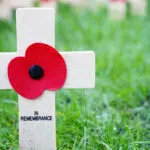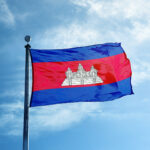Remembrance Sunday is celebrated every second Sunday of November, on November 9 this year. Initially, the closest Sunday to Armistice Day or Remembrance Day (November 11), Remembrance Sunday is held in the U.K. to celebrate the bravery of the British and Commonwealth soldiers who fought in World War I and II. We now celebrate world peace, which was restored by the action of these soldiers — an act of bravery and courage we will never forget.
History of Remembrance Sunday
World War I broke out in 1914, and ended in 1918, when the Germans surrendered. This led to a peace treaty (the Armistice) being signed by the involved nations in 1918, on November 11, which is now celebrated as Remembrance Day. The celebration is specific to time as it begins on the 11th hour of the 11th day in the 11th month of the year. It begins with a two-minute silence to respect the souls of the soldiers who died in action. The commemoration was held every year, until World War II when it was moved to Sunday for security measures.
Armistice Day fell on Sunday in 1945, the year World War Il ended, making it unnecessary to change the measure. When it seemed that continuing the November 11 tradition would understate the importance of World War Il, the Archbishop of Westminster, Bernard Griffin, suggested that the second Sunday in November be used to mark the remembrance of both wars. This suggestion was later approved by the King of England.
Remembrance Sunday is celebrated in the Cenotaph in Whitehall. The Cenotaph, pioneered by Edwin Lutyens, is a permanent monument in honor of fallen soldiers in the world war.
The national ceremony begins at 11 am with a two-minute silence followed by prayers, laying of wreaths, music, and marching.
The ceremony is also marked with a poppy lapel adornment. Poppies signify the remembrance celebration as these flowers bloomed on many battlefields after the war. The Royal British Legion began to sell red poppy lapels to support soldiers.
In 1952, the Festival of Remembrance was officially celebrated by the Royal British Legion, after they were renamed. Since then, the festival involved more elaborate activities with music, choirs, group presentations, and parades.
Remembrance Sunday timeline
The first Armistice Day is celebrated as a prelude to peace, after World War I.
The Cenotaph is built as a permanent memorial for all Armistice Day celebrations.
The Royal British Legion begins to sell poppies to raise support for ex-servicemen.
The second Sunday of November is selected to commemorate the two World Wars.
Remembrance Sunday FAQs
How long did World War I last?
World War I started in 1914 and ended in 1918.
What is the difference between Remembrance Day and Remembrance Sunday?
Remembrance Day, also called Armistice Day, is on November 11 and it celebrates the peace agreement that ended World War I. Remembrance Sunday is the Sunday closest to it, for a ceremonial commemoration of soldiers who served in both wars.
Why does the Queen of England wear five poppies?
She does so to pay respects to the different groups that served in the war. Each Poppy represents each arm of service: the Navy, the Air Force, Civil Defence, Army, and Women.
How to Observe Remembrance Sunday
Get a poppy
Poppies are a signature flower for the day.
Observe the 2-minute silence
Honor the fallen soldiers by joining in the two-minute silence at 11 am.
Watch the remembrance service
You can also watch the remembrance service at the Cenotaph, which will be broadcast.
5 Facts About The World Wars
A new dimension of medicine
World War I led to the invention of plastic surgery and blood banks to mend facial injuries and save bleeding soldiers.
Explosively loud
Explosions in France were heard in London, 344 kilometers away.
Hamburg-er
During World War II, Americans named hamburgers ‘liberty steaks’ because 'hamburger' sounded too German.
Lost in war
Over 64 million lives were lost during World War II.
Strange license plate
Archduke Franz Ferdinand, whose assassination led to World War I, had a license plate A111 118, which could be read as 11 November 1918, which was the day the eventual Armistice was signed.
Why Remembrance Sunday is Important
It is a reminder of peace
As we celebrate these fallen heroes, we remember that their sacrifice is why we have world peace today.
We avoid wars
Remembrance Sunday inspires us to seek peace in spite of conflict. As we do not want a repeat of wars, we strive to settle conflicts and avoid them.
We teach future generations the importance of peace
When we celebrate, we teach our kids the importance of peace and the need to avoid wars. This way, the future will recognize the significance of peace.
Remembrance Sunday dates
| Year | Date | Day |
|---|---|---|
| 2024 | November 10 | Sunday |
| 2025 | November 9 | Sunday |


























